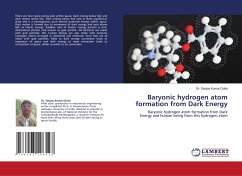![Molecular Background of Oxygen Sensitivity in [FeFe] hydrogenases Molecular Background of Oxygen Sensitivity in [FeFe] hydrogenases](https://bilder.buecher.de/produkte/34/34228/34228587z.jpg)
Molecular Background of Oxygen Sensitivity in [FeFe] hydrogenases
Benefits and Challenges in Enzymatic Hydrogen Production
Versandkostenfrei!
Versandfertig in 6-10 Tagen
36,99 €
inkl. MwSt.

PAYBACK Punkte
18 °P sammeln!
This work elaborates on the molecular background of oxygen sensitivity in [FeFe] hydrogenases. Hydrogenases are iron-sulphur proteins that catalyse hydrogen turnover in micro organisms. [FeFe] hydrogenases in particular are high-efficiency catalysts for hydrogen evolution but irreversibly inactivated by oxygen. Their unique [4Fe-4S]-[2Fe-2S] cofactor is referred to as "H-cluster". Three different [FeFe] hydrogenases were analysed by electrochemistry. These were the bacterial hydrogenases CaHydA and DdH as well as CrHydA1 of Chlamydomonas reinhardtii, a unicellular green alga. The effects of ox...
This work elaborates on the molecular background of oxygen sensitivity in [FeFe] hydrogenases. Hydrogenases are iron-sulphur proteins that catalyse hydrogen turnover in micro organisms. [FeFe] hydrogenases in particular are high-efficiency catalysts for hydrogen evolution but irreversibly inactivated by oxygen. Their unique [4Fe-4S]-[2Fe-2S] cofactor is referred to as "H-cluster". Three different [FeFe] hydrogenases were analysed by electrochemistry. These were the bacterial hydrogenases CaHydA and DdH as well as CrHydA1 of Chlamydomonas reinhardtii, a unicellular green alga. The effects of oxygen and carbonmonoxide (CO) were probed, the latter of which reversibly inhibits hydrogenases. DdH is inactivated by oxygen ten times more rapid than CrHydA1 and three orders of magnitude faster than CaHydA. The same correlation was found for CO inhibition, although reactivation is in the same range for all three enzymes. Moreover, CO was shown to prevent the H-cluster from oxygen damage. Given that CO can not bind the [4Fe-4S] part of the cofactor, the capability of CO to protect the entire H-cluster proves that oxygen attacks the [2Fe-2S] site exclusively, too.












